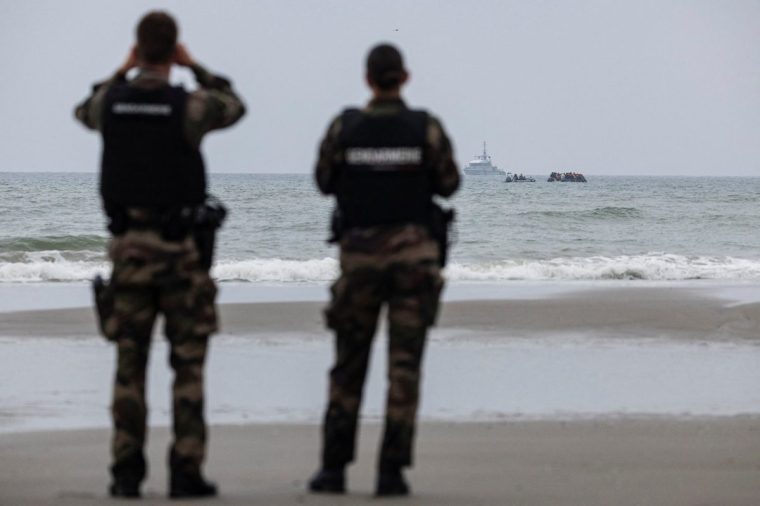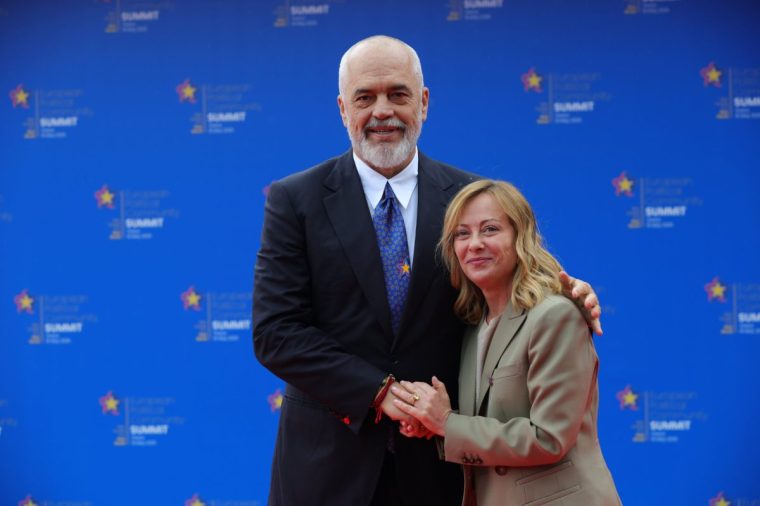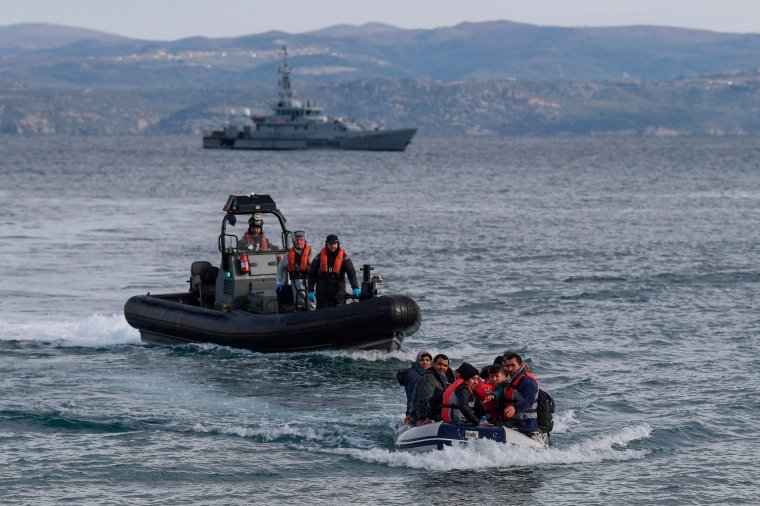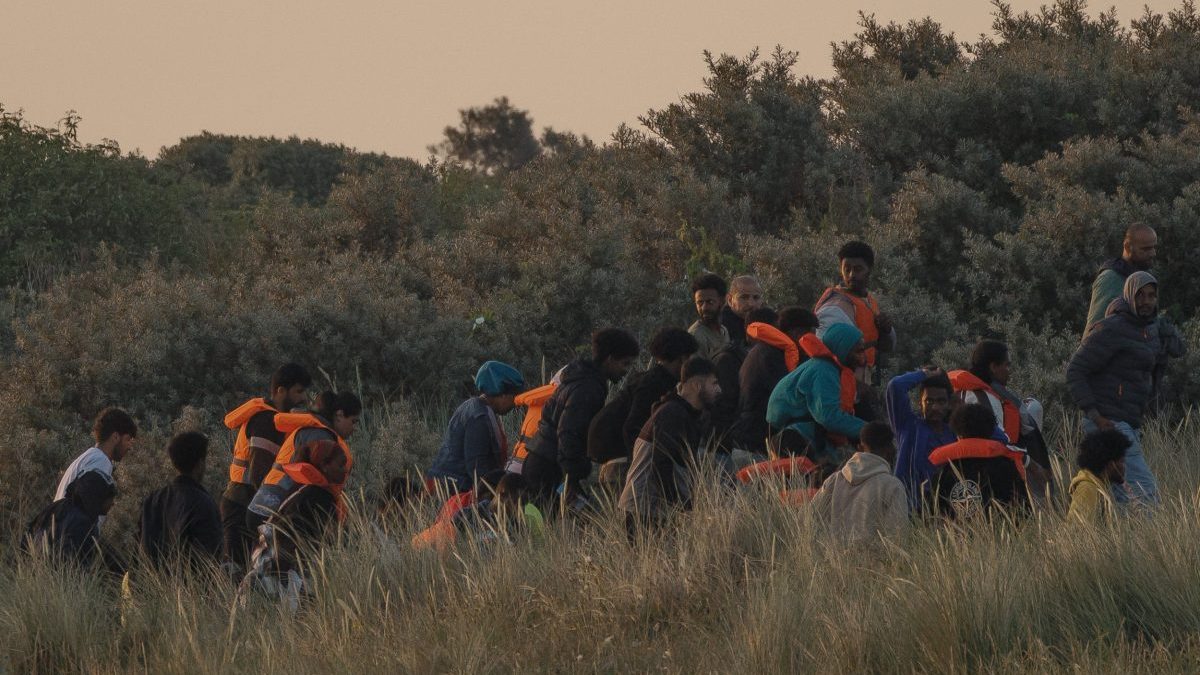The UK is among several countries exploring and implementing increasingly tough measures to tackle the numbers of migrant arrivals
Countries across Europe and the rest of the world have been exploring and implementing increasingly tough measures to tackle the numbers of migrant arrivals.
In the UK, the number of people applying for asylum reached 111,000 in the year ending June 2025. The figure is almost double since 2021 and the highest number of asylum claims since comparable records began in 1979.
As of 31 August, 29,003 migrants had crossed the Channel in small boats in 2025, up from 21,052 for the same period in 2024. Over 50,000 migrants have come via this route since Labour came to power.
On Monday, the British Government said it would suspend applications from registered refugees to bring family members into the country in order to give the government time to tighten the rules.
Here The i Paper looks at how six other countries and how they are responding to their own migrant crises.
France
France received 157,850 asylum applications last year.
It has more than 1,200 gendarmes (military police) stationed along its coast seven days a week to deter migrants, a measure partly funded by the UK Government.
Latest figures showed deportations increased by 27 per cent last year equating to approximately 22,000.
 French Gendarme observe migrants onboard a smuggler’s boat as they sail in an attempt to cross the English Channel off the beach of Hardelot in Neufchatel-Hardelot, northern France (Photo: Sameer Al-DOUMY / AFP)
French Gendarme observe migrants onboard a smuggler’s boat as they sail in an attempt to cross the English Channel off the beach of Hardelot in Neufchatel-Hardelot, northern France (Photo: Sameer Al-DOUMY / AFP)
Last month, a UK-France treaty to tackle small boat journeys came into force. Under the agreement, anyone entering the UK on a small boat can be detained immediately on arrival and returned to France.
A “one-in, one-out” scheme means an equal number of migrants will be eligible to come to the UK through a new route if they have not attempted an illegal crossing before – subject to full documentation and security and eligibility checks.
Last month, the Home Office announced it was launching an awareness campaign – with the French government – to share information about the new treaty with migrants in northern France.
Spain
As with many other countries in Europe, immigration is a contentious issue in Spain, where 166,145 people claimed asylum last year.
However, its Prime Minister, Pedro Sánchez, is supportive of immigration and the Spanish government has vowed to assist migrants’ searches for employment to ensure they are not restricted to low-skilled, low-paid jobs.
Spain has also committed to reducing bureaucracy for residency applications and has introduced a residence permit for illegal immigrants who have a work contract.
But last month, a poll for El Mundo newspaper found 70 per cent of Spaniards supported mass deportations of illegal migrants – a policy recently proposed by Reform UK.
Italy
In Italy, asylum seekers face restricted access to reception services if they submit their applications more than 90 days after arriving in the country.
Claimants are also prioritised by arrival method, with asylum seekers who enter the country via search and rescue operations given the most urgent access to reception services such as accommodation and psychological support.
The high numbers of migrants arriving in Italy, which saw 158,610 people claim asylum last year, has fuelled far-right politicians’ popularity.
 Albanian Prime Minister Edi Rama and Italian Prime Minister Giorgia Meloni attend the 6th European Political Community summit at Skanderbeg Square in Tirana (Photo: Armando Babani/Getty Images)
Albanian Prime Minister Edi Rama and Italian Prime Minister Giorgia Meloni attend the 6th European Political Community summit at Skanderbeg Square in Tirana (Photo: Armando Babani/Getty Images)
Italy’s Prime Minister Giorgia Meloni made a deal with Albania in 2023 to deport small boat arrivals from “safe” countries there for fast-track processing.
But last month the European Court of Justice ruled Italy’s process of defining a “safe country” to send asylum seekers to when their applications are rejected breaches EU law.
The court said a nation can only be classed as safe if the entire population there is.
Before the court issued its ruling, the scheme suffered numerous issues with the handful of migrants sent Albania returned following interventions by lawyers.
Greece
The Mediterranean nation was on the frontline of the 2015-2016 migration crisis when more than a million people fleeing war and poverty in the Middle East and Africa crossed into Europe.
On Wednesday, the Greek parliament passed a law on toughening penalties for rejected asylum seekers and speeding up returns to their home countries.
 A dinghy with 15 Afghan refugees approaches the Greek island of Lesbos (Photo: Aris Messinis/AFP via Getty)
A dinghy with 15 Afghan refugees approaches the Greek island of Lesbos (Photo: Aris Messinis/AFP via Getty)
Under the legislation, undocumented migrants entering Greece from third countries deemed safe by the EU and not entitled to asylum must return home or be detained for at least 24 months and face fines of up to €10,000.
It comes after a fresh spike in arrivals at its southern borders this year. In response to a surge in migrants from Libya through the islands of Crete and Gavdos this year, the government introduced a temporary ban on processing asylum applications of people coming from North Africa.
Prime Minister Kyriakos Mitsotakis’s administration has also built a fence at Greece’s northern borders and boosted sea patrols to deter migrants from crossing since it came to power in 2019.
The US
US President Donald Trump claims his predecessor’s administration “invited, administered, and oversaw an unprecedented flood of illegal immigration into the United States”.
Since taking office for a second term Trump has implemented a wide-ranging crackdown on undocumented migrants.
Among his flagship anti-migrant policies is the mass detention and deportation of migrants without legal status to remain in the US, including those whose cases had been under review.
He also approved the deployment of additional troops to the US-Mexico border, where he orchestrated the construction of a 1,954-mile wide border wall that he now wants painted black to make it hotter and harder to climb.
Waves of Immigration and Customs Enforcement (ICE) raids have also swept across the country under Trump’s direction, with thousands of people arrested, detained and deported to countries that are not their home nation.
After just 100 days into his second tenure as president, his administration announced ICE had arrested 66,463 “illegal aliens”.
His aggressive stance on immigration has seen some migrants who are not subject to deportation orders opt for “voluntary deportation”, leaving the country at their own expense.
The Department of Homeland Security has also rolled out assistance for those who want to “voluntarily self-deport”, offering cost-free travel, forgiveness of any failure to depart fines, and a $1,000 (£744) exit bonus.
Australia
Australia’s approach to dealing with migrants has been praised by and provided inspiration for anti-immigration leaders such as Nigel Farage and Donald Trump.
Australia has banned people who enter the country by boat, and some who enter via plane, from seeking asylum. Migrants who do arrive via boat are sent to the Pacific island of Nauru for processing, which in many cases takes years, and are prohibited from ever settling in Australia.
In its latest round of measures to tackle migrant arrivals, which critics have labelled “absolutely Trump-like”, Anthony Albanese’s government has struck a $2.5bn (£1.2bn) three-decade deal with the island of Nauru, the world’s third smallest country, to host non-citizens deported from Australia.
At the end of 2024, 91,340 people, mostly from Syria and Afghanistan, were identified as asylum seekers in Australia, according to the UNHCR. The Australian government said the country’s net overseas migration figure is down 37 per cent to 341,000 from a peak of 538,000 in the year 2022-23 year.
